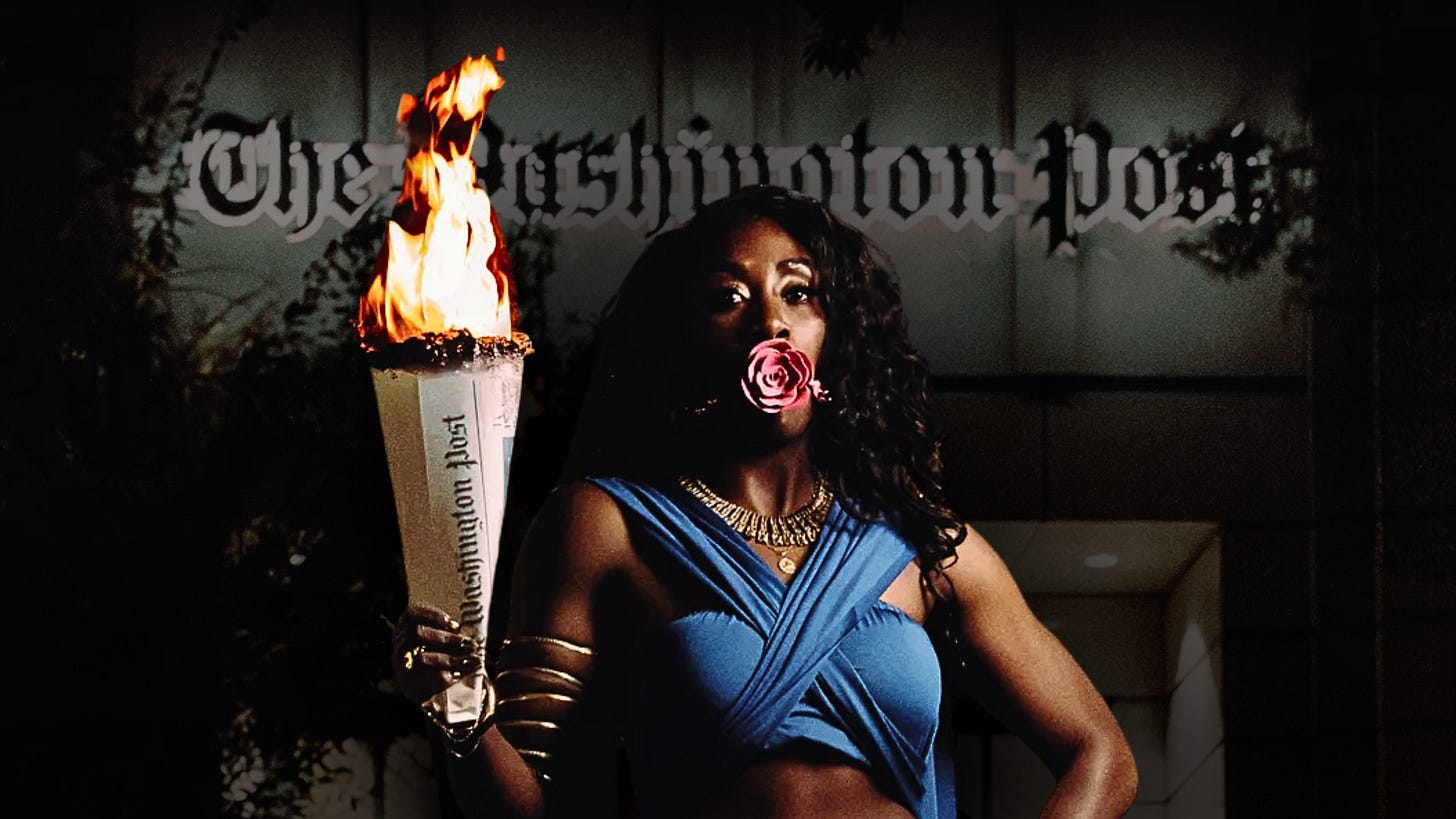Cowardly journalists try to silence the brave
Reaction to the Charlie Kirk assassination exposes media timidity
The assassination of Charlie Kirk last week was the latest act of political violence in an increasingly divided society. It was unacceptable. In its aftermath, some people who run news operations are making the impact of that murder even worse by trying to kill truth-telling and dissent.
Two prominent journalists – Karen Attiah of the Washington Post and Matthew Dowd of MSNBC – have been fired in the wake of the assassination for commentary that clearly did not warrant such action. These firings are the latest examples of the “media capture” we see as fascism descends: news organizations intimidated by the right wing, turning away from uncomfortable facts.
The firing of Attiah is especially infuriating. An opinion writer for the Washington Post, she went through an excruciating ordeal, serving as the editor for journalist Jamal Khashoggi when the Saudis murdered him. She has been a voice of reason on a WaPo opinion staff that has steadily become an embarrassment to a free press, thanks to Trump-enabling oligarch owner Jeff Bezos. I wrote in July about why the Washington Post is now dead to me as a credible journalism outlet.
I figured Attiah would eventually leave WaPo, as have so many other quality journalists, but I was shocked Monday morning when she announced that one trigger for her firing was her public commentary related to the Charlie Kirk assassination.
Attiah said she was fired for “speaking out against political violence, racial double standards, and America’s apathy toward guns.” She said WaPo “accused my measured Bluesky posts of being ‘unacceptable,’ ‘gross misconduct’ and of endangering the physical safety of colleagues — charges without evidence, which I reject completely as false.”
As I write this, WaPo has not offered its version of events. But Attiah details her social media posts in a Substack post. Read them for yourself.
Attiah said her only direct reference to Kirk was recalling one of his quotes: "Black women do not have the brain processing power to be taken seriously. You have to go steal a white person's slot.”
She committed the crime of quoting someone’s own words. Too many other journalists sugar-coated Kirk’s legacy. One notorious example was New York Times opinion writer Ezra Klein’s piece headlined “Charlie Kirk Was Practicing Politics the Right Way.”
The goal of journalism is not to avoid conflict. Quite the opposite. When I was metro editor of the Chicago Tribune, I told reporters that if they never made anyone mad, they should worry about the impact of their work. I wasn’t urging them to be provocative. I was urging them to be fearlessly truth-telling, which always angers people.
While Attiah’s ouster perhaps seemed inevitable, the firing of Matthew Dowd as an MSNBC commentator came as a shock, and was every bit as intellectually bankrupt.
When news broke about a shooting at a Kirk rally – but before it was reported that Kirk was hit – Dowd was asked to comment about it. He said “hateful thoughts lead to hateful words which ultimately lead to hateful actions.” He didn’t say Kirk deserved it or asked for it. He said harsh rhetoric sometimes inspires violence. Which is true.
After the facts became known, Dowd made a statement to clear up any misunderstanding: “I apologize for my tone and words. Let me be clear, I in no way intended for my comments to blame Kirk for this horrendous attack.”
MSNBC fired him anyway. Dowd blamed a “right-wing media mob,” and he was right. Meanwhile, Fox News’ Brian Kilmeade called for “involuntary lethal injection” of the homeless and mentally ill, apologized four days later, and still has his job.
A less prominent journalist was also punished for doing his duty. Soon after Kirk was shot, Florida Politics reporter A.G. Gancarski texted Republican Rep. Randy Fine to ask if the shooting had changed his views on gun control. Fine told Gancarski never to contact him again and posted the text exchange on X along with his comment: “You don’t hate the media enough.”
In an embarrassing example of media subservience, Gancarski’s boss, Peter Schorsch, suspended him. “I think everybody today should be asking questions about a wide range of policies,” Schorsch said. “But when a house is on fire, I don’t think you should ask questions about a person’s insurance policy. You put out the fire first.”
That’s ridiculous. Gancarski acted quickly to get a story. That’s what journalists are supposed to do. Next time, he’ll know he should go get lunch and call a friend to discuss weekend plans before he jumps on breaking news.
The clear message from newsroom management is that the people on the front lines should type a lot of words or take up a lot of TV time without saying much of anything.
They’re building an ever-more-timid media ethos that is the perfect complement to a dictatorship.
Advertise in this newsletter
Do you or your company want to support COURIER’s mission and showcase your products or services to an aligned audience of 190,000+ subscribers at the same time? Contact advertising@couriernewsroom.com for more information.




Enough! Don't the bosses of our media outlets understand that their capitulation to fascist lies is not just disgraceful it is downright dangerous? But how can we expect better when the mainstream outlets are owned by corporations intent only on padding their bottom lines, even if it means having to jettison the pursuit of truth and morality to do so.
Thank goodness for honest voices like yours on Substack, Mark. They are needed now, in these dark times, more than ever.
I had always thought that 'freedom of the press' would mean that our journalists would do better when push came to shove. Some of them have. Some are huge disappointments.